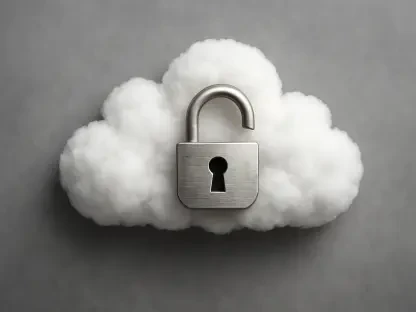In today’s society, discussions about mental health have become more prominent, leading to the emergence of mental health apps designed to support wellness. This article explores whether these apps genuinely provide support or simply add to our expenses and digital burdens.
The Rise of Mental Health Apps
Expansion of the Market
The market for mental health apps has experienced significant growth, with predictions indicating it will surpass $6 billion by 2024. Popular apps such as Headspace, Calm, BetterHelp, Moodfit, and Talkspace offer a range of services, including guided meditations, talk therapy, daily affirmations, sleep aids, and self-care reminders. By providing these services through a digital platform, the apps promise to deliver mental health support directly to users’ smartphones. This marked expansion highlights the increasing demand for accessible mental wellness tools, driven partly by the broader societal acceptance and recognition of mental health challenges.
Addressing Traditional Therapy Challenges
Mental health apps are particularly beneficial in overcoming obstacles associated with traditional therapy, such as high costs, accessibility issues, and lengthy waitlists. Traditional therapy can often be expensive, making it inaccessible for many individuals. Additionally, people living in remote areas may find it difficult to access quality mental health care, and the stigma surrounding mental health can deter individuals from seeking help. Mental health apps, by contrast, offer a more affordable and convenient alternative. Their 24/7 availability means users can access support whenever and wherever they need it. These features have positioned mental health apps as a valuable supplementary tool for those seeking to maintain their mental wellness more flexibly and affordably.
Advantages and Disadvantages
Accessibility and Convenience
One of the primary advantages of mental health apps is their accessibility and convenience. They provide valuable support for individuals who are unable to afford regular therapy sessions, live in remote locations, or face stigma associated with seeking help. Users can access a range of mental wellness tools, including mood trackers, guided meditation sessions, and cognitive behavioral therapy (CBT) techniques, often with just a few taps on their smartphones. These features can help users manage their mental health on their terms, offering a sense of empowerment and control over their mental wellness journey.
Risks of Oversimplification
Despite the benefits, there is concern over the potential oversimplification of complex mental health issues by these apps. Many mental health conditions require professional intervention and personalized care that an app may not adequately provide. Although these apps are designed to help manage general stress, they may lack the depth needed to address more severe conditions. Furthermore, the design of these apps often fails to consider factors such as neurodivergence, trauma-informed care, or cultural contexts, which are crucial in effectively addressing individual needs. The lack of consistent regulation or evaluation by mental health professionals also raises questions about the quality and reliability of the support offered by these apps.
Financial and Emotional Costs
Subscription Fatigue
A significant downside to mental health apps is the financial burden they can impose, particularly through subscription models. Many apps offer free downloads but require ongoing subscriptions to access their full range of features. Users often sign up for trial periods and may forget to cancel, leading to recurring charges. Subscription costs can range from $9.99 to $69.99 per year, contributing to what is known as “subscription fatigue.” This scenario is where individuals become overwhelmed by the sheer number of recurring payments for various digital services, leading to both financial strain and dissatisfaction with unused subscriptions. It can potentially transform what was initially perceived as a cost-effective mental wellness tool into an added financial burden.
Self-Care Guilt
Another emotional cost associated with mental health apps is what has been referred to as “self-care guilt.” This phenomenon occurs when users feel inadequate or guilty for not engaging consistently with app reminders and features. Mental health apps often send notifications to check in, breathe, track gratitude, or complete various other self-care tasks. While these reminders are meant to promote wellness, they can sometimes create a sense of failure when users do not meet these expectations. This cycle of unmet expectations and subtle guilt may undermine the very stress relief and mental health support these apps are designed to provide, causing more harm than good.
Realistic Expectations
Limits of Technology
Relying heavily on technology to manage mental health may create unrealistic expectations. Mental health progress does not always follow linear patterns measurable by apps. The tendency to quantify every aspect of mental health can sometimes exacerbate anxiety, making individuals more focused on symptoms rather than underlying issues. Excessive self-monitoring can draw attention to fluctuations in mood that might otherwise pass unnoticed. Technology’s limitations in fully understanding and empathizing with individual experiences suggest that a balanced approach, blending digital and human interactions, may be the most effective in achieving holistic mental health care.
Human Interaction vs. Technology
Human interactions, characterized by empathy and personal connection, remain irreplaceable in mental health care. While apps can offer tools and resources, they often lack the nuanced understanding and personalized support that face-to-face therapy or conversations with supportive friends and family provide. Human connection taps into vital aspects of emotional healing, offering warmth, empathy, and tailored responses to individual needs. These interactions are essential for fostering genuine mental wellness, highlighting the importance of viewing mental health apps as supplementary tools that enhance but do not replace personal care.
Effective Use of Apps
Positive User Experiences
Despite the criticisms, many users have reported positive experiences with mental health apps. For those needing structure, reminders, or calming tools, especially during moments of panic or insomnia, these apps can be invaluable. Apps like Insight Timer and Calm offer free guided meditations that help reduce stress and promote relaxation. Mood-tracking apps assist users in identifying emotional triggers and recognizing patterns that might signal the onset of depressive episodes. Online therapy platforms have made licensed therapists more accessible to many, allowing users to engage in professional mental health support from the comfort of their own homes.
Evaluating Apps for Individual Needs
When choosing a mental health app, users should critically evaluate whether the app is designed or endorsed by mental health professionals. This can ensure a degree of reliability and effectiveness. Users should also assess whether the app allows them to feel in control of the tool and not overwhelmed by unnecessary pressures or notifications. Additionally, it is important to consider if the app meets specific individual needs, whether through customizable features or user-friendly interfaces, without imposing heavy subscription requirements. Choosing the right app can provide valuable support without becoming an additional source of stress.
Conclusion
In recent times, the conversation around mental health has gained significant momentum, leading to the development of numerous mental health apps aimed at promoting wellness. This article delves into the debate on whether these apps genuinely enhance mental well-being or merely contribute to our growing list of expenses and technological clutter.
Mental health apps are designed to offer a range of services including meditation guides, therapy sessions, mood tracking, and emergency support. While some users find these tools helpful for managing stress and maintaining mental balance, others argue that the digital solutions may not replace traditional therapy or provide the personal touch needed in mental health care. Additionally, there is concern over data privacy and the effectiveness of these apps, suggesting that not all of them meet professional standards. It’s crucial to examine the real value these mental health apps add to our lives and whether they offer a significant benefit or simply become another digital burden we carry.









